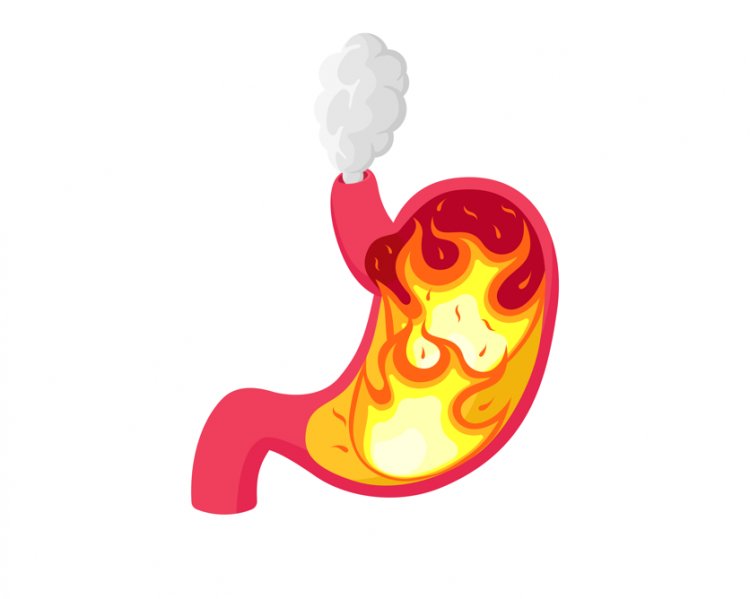Comprehensive Overview of Gastroesophageal Reflux Disease (GERD)
Gastroesophageal reflux disease (GERD) is a chronic condition characterized by the regurgitation of stomach contents into the esophagus, leading to troublesome symptoms and potential complications. It's a prevalent gastrointestinal disorder affecting millions of individuals worldwide, with a significant impact on their daily lives. #GERD #AcidReflux #HeartburnRelief #Gastroenterology #DigestiveHealth #LondonGastroenterologyCentre #ManchesterDigestiveDisorders #Guy'sandStThomas'NHS #BirminghamGastroenterologyClinic #RoyalFreeLondonNHS #AcıbademHealthcareGroup #MemorialHealthGroup #LivHospital #AmericanHospitalIstanbul #MedicalParkHospitalsGroup #GERDManagement #EsophagealHealth #DigestiveDisorders #HealthcareClinics #GastrointestinalServices

Understanding GERD
GERD develops when the lower esophageal sphincter (LES), a muscular ring located between the esophagus and stomach, weakens or relaxes inappropriately. This malfunction allows stomach acid, bile, and digestive enzymes to flow back into the esophagus, a process known as acid reflux. While occasional reflux is normal, frequent and persistent episodes can lead to the development of GERD.
Symptoms and Manifestations
The symptoms of GERD can vary in severity and may include:
- Heartburn: A burning sensation in the chest, often occurring after meals or when lying down. It is one of the most common symptoms of GERD.
- Regurgitation: The perception of stomach contents, including acid, rising up into the throat or mouth, resulting in a sour or bitter taste.
- Dysphagia (Difficulty Swallowing): Difficulty or discomfort when swallowing food or liquids, often due to inflammation or narrowing of the esophagus.
- Chest Pain: GERD-related chest pain may mimic cardiac chest pain (angina) and typically occurs after eating or when lying down.
- Chronic Cough: A persistent cough, particularly at night, which may worsen when lying down or after eating.
- Hoarseness or Sore Throat: Irritation of the throat caused by acid reflux, leading to hoarseness, throat clearing, or a persistent sore throat.
Contributing Factors and Causes
Several factors can contribute to the development of GERD, including:
- Weak Lower Esophageal Sphincter (LES)
- Hiatal Hernia
- Dietary Triggers
- Obesity
- Pregnancy
Diagnosis and Evaluation
Diagnosing GERD typically involves a comprehensive evaluation by a healthcare professional, which may include:
- Medical History
- Physical Examination
- Diagnostic Tests
Management and Treatment Approaches
Treatment strategies for GERD aim to alleviate symptoms, promote healing of esophageal tissue, and prevent complications. These may include:
- Lifestyle Modifications
- Medications
- Surgical Interventions
Complications and Prognosis
Untreated or poorly managed GERD can lead to potentially serious complications, including:
- Esophagitis
- Esophageal Stricture
- Barrett's Esophagus
- Respiratory Complications
Gastroesophageal reflux disease (GERD) is a complex and multifactorial condition that requires a comprehensive approach to diagnosis, treatment, and management. By understanding the underlying causes, triggers, and treatment options for GERD, individuals can effectively manage their symptoms, improve their quality of life, and reduce the risk of complications associated with this chronic disorder.
Centers or Clinics in the United Kingdom:
-
The London Gastroenterology Centre (London): This center offers comprehensive gastrointestinal services, including diagnosis and management of GERD, with a team of experienced gastroenterologists and specialist nurses.
-
The Digestive Disorders Centre (Manchester): Specializing in the diagnosis and treatment of digestive disorders, this center provides advanced endoscopic procedures and medical therapies for GERD patients.
-
Guy's and St Thomas' NHS Foundation Trust (London): As one of the leading NHS trusts in the UK, they offer specialized gastroenterology services, including GERD management, with access to state-of-the-art diagnostic and treatment facilities.
-
The Birmingham Gastroenterology Clinic (Birmingham): This clinic provides a range of gastroenterology services, including consultations, diagnostic tests, and treatment options for patients suffering from GERD and other digestive disorders.
-
The Royal Free London NHS Foundation Trust (London): With a dedicated gastroenterology department, this NHS trust offers comprehensive care for GERD patients, including access to specialized clinics and multidisciplinary teams.
Centers or Clinics in Turkey:

-
Acıbadem Healthcare Group (Istanbul, Ankara, Izmir, etc.): With multiple locations across Turkey, Acıbadem Healthcare Group offers extensive gastroenterology services, including diagnosis and treatment of GERD, with a team of experienced gastroenterologists and modern facilities.
-
Memorial Health Group (Istanbul, Ankara, Antalya, etc.): This healthcare group provides advanced gastroenterology services, including endoscopic procedures and medical treatments for GERD patients, supported by a team of specialists and modern technology.
-
Liv Hospital (Istanbul, Ankara): Liv Hospital offers specialized care for gastrointestinal disorders, including GERD, with a multidisciplinary approach that includes gastroenterologists, surgeons, and dietitians.
-
American Hospital (Istanbul): As one of the leading private hospitals in Turkey, American Hospital provides comprehensive gastroenterology services, including diagnosis and management of GERD, with a focus on patient-centered care and advanced treatment options.
-
Medical Park Hospitals Group (Istanbul, Ankara, Antalya, etc.): With a network of hospitals across Turkey, Medical Park Hospitals Group offers a wide range of medical services, including gastroenterology, with specialized clinics for GERD diagnosis and treatment.
Discover Coupoly's exclusive Medical Concierge Service, connecting you with renowned doctors and clinics, whether in the UK or abroad.
Get in Touch
Disclaimer:
The information provided in this article is for educational purposes only and should not be considered medical advice. If you have any health concerns or are experiencing symptoms, it is important to consult with a healthcare professional, such as a doctor or clinic, for proper diagnosis and treatment. Always seek the advice of your doctor or other qualified health provider with any questions you may have regarding a medical condition. Do not disregard professional medical advice or delay in seeking it because of something you have read in this article.
What's Your Reaction?





















